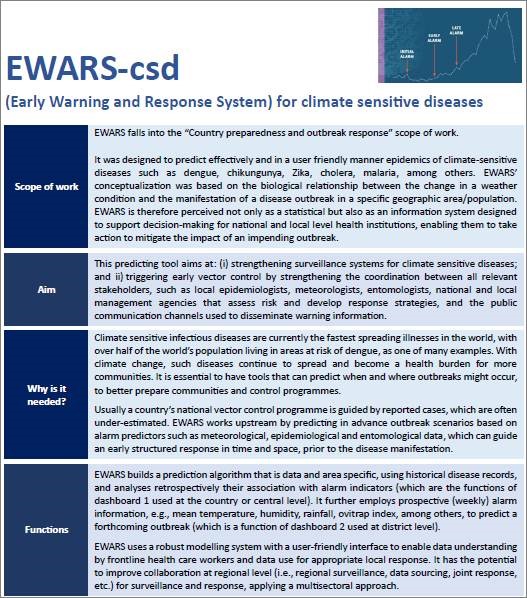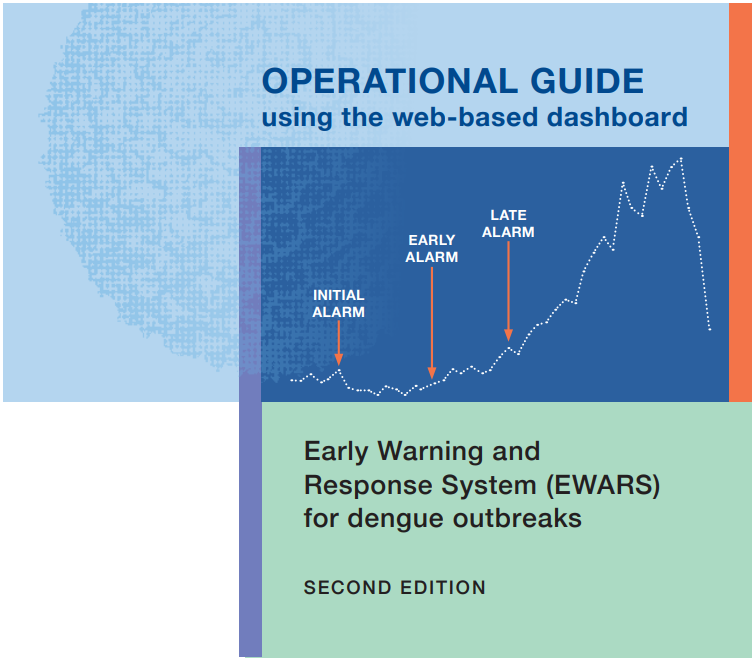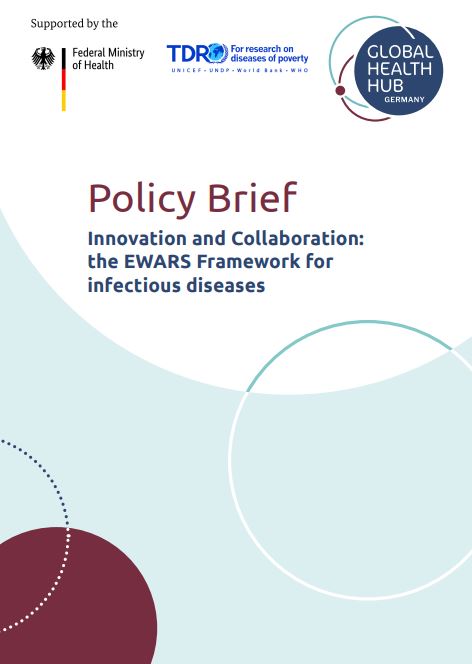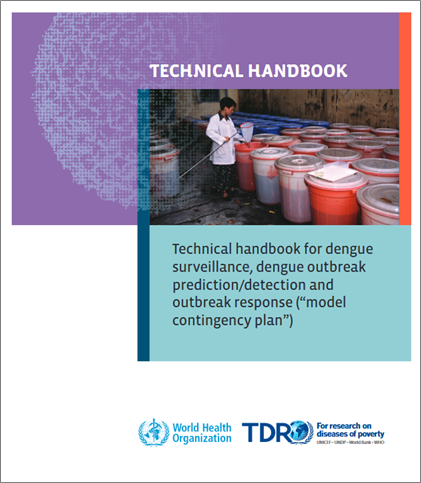
Early Warning and Response System for climate-sensitive diseases (EWARS-csd)
Overview
Climate-sensitive diseases are illnesses whose incidence, intensity or distribution is impacted by climate and weather conditions. These diseases can be directly or indirectly influenced by variations in temperature, precipitation, humidity and extreme weather events. Examples include vector-borne diseases, such as malaria and dengue fever, transmitted by mosquitoes that thrive in warmer and wetter climates, and water-borne diseases such as cholera, which may increase with flooding and inadequate water sanitation. Climate change has the potential to modify the epidemiology of these diseases, leading to increased prevalence or severity in specific regions.





